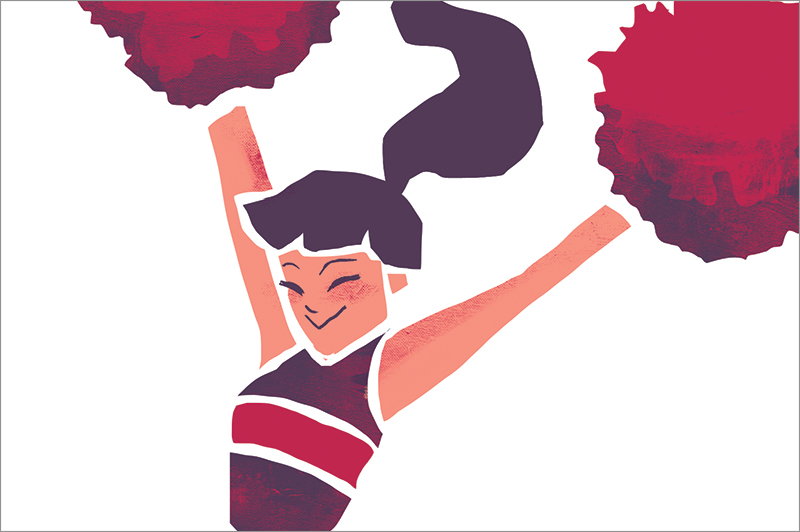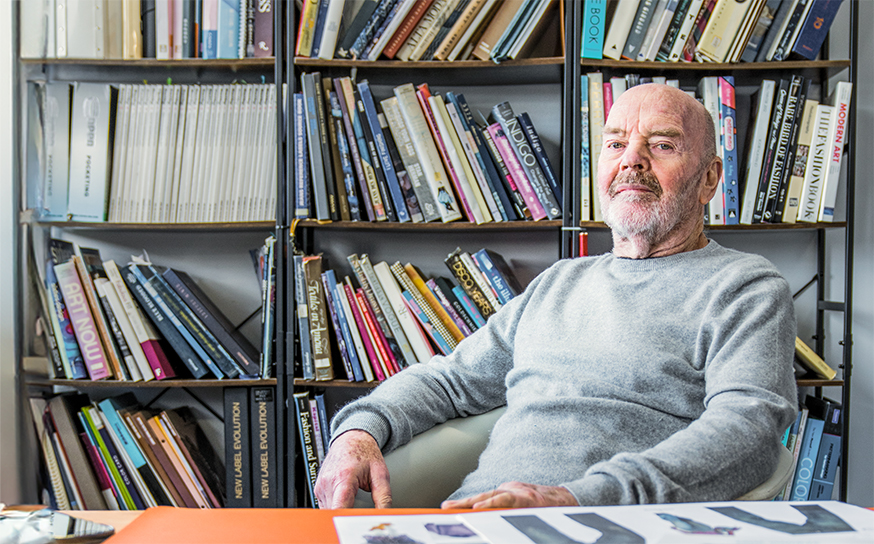
What’s Up Doc?
The cleansing craze, the benefits of coronary calcium scans and
a way to prevent kids’ sports injuries
-
CategoryPeople
-
Written byVictoria Clayton

Illustrated by Christine Georgiades
Q: I’m a bit apprehensive about getting my kids into sports. Anything I can do to lessen the chances of injury?
Matthew Bernstein, DC, a chiropractor at Elite Sports Medicine in Woodland Hills, sees about 10 kids a day with sports injuries. There’s one sport that stands out as notorious for injury: cheerleading. Seriously. “Cheerleading is extremely demanding on the body because of the tumbling and stunting,” says Dr. Bernstein. “Plus it seems that too many of the coaches and athletes—unlike, say, football—don’t seem to be adequately aware of injury risk.” That said, Dr. Bernstein admits any sport can lead to injury, especially when athletes are young and still growing. Using wraps or braces without consulting your doctor, however, is a horrible idea. “If you brace a healthy joint without cause, you’ll actually weaken it,” warns Dr. Bernstein. The best way to prevent injury is something called proprioceptive training, which improves people’s ability to sense where body parts are without looking. People with better proprioception have the strength, flexibility and balance needed to make minute adjustments that help prevent injury. Rocker boards, balance discs or kinesthetic balls all help. Kids actually like them, and many manufacturers have created products and games that make proprioceptive training fun.
Q: From juices to soups, there seems to be a never-ending supply of cleanses. Any merit to these?

Everyone from Beyonce to the mailman seems to be cleanse-happy. According to Ron Bahar, MD, an Encino-based gastroenterologist, cleanses are popular simply because the term “cleanse” just sounds good. Who doesn’t want to feel cleaner? But cleanses are simply a fad. “Cleanses are universally void of long-term efficacy,” says Dr. Bahar. If you lose a few pounds on a cleanse, it will be at the expense of lean body mass or hydration rather than fat. And you almost always gain back whatever you lost. But most important, according to Dr. Bahar, is that there’s no medical necessity to “cleanse” your body. That function is completed by the body’s normal physiology, free of charge. The only way to shed pounds for real is to eat sensibly and exercise.
Q: The documentary The Widowmaker, which discusses the controversy over the coronary calcium scan, was powerful. Should I get one?
 So you want to get a noninvasive test that runs less than $200 (with doctor referral) and has proven to be effective in getting people to live healthier? Makes sense. “A coronary calcium scan is one of the most important tests available. It can save more lives than we save using angioplasty or bypass surgery, because prevention is always more important than treatment,” says Dr. Daniel Berman, chief of cardiac imaging and nuclear cardiology at Cedars-Sinai. Dr. Berman says anyone at increased risk for heart attack should consider a scan (overweight, smoke, elevated cholesterol or a family history of heart disease). He also recommends the scan for men 45+ and women 55 and older. Coronary calcium scans (“heart scans”) measure the amount of calcium in the walls of your coronary arteries, which supply your heart with blood. Elevated calcium levels indicate a higher likelihood of developing coronary artery disease. Lifestyle changes and sometimes even drugs can lower risk.
So you want to get a noninvasive test that runs less than $200 (with doctor referral) and has proven to be effective in getting people to live healthier? Makes sense. “A coronary calcium scan is one of the most important tests available. It can save more lives than we save using angioplasty or bypass surgery, because prevention is always more important than treatment,” says Dr. Daniel Berman, chief of cardiac imaging and nuclear cardiology at Cedars-Sinai. Dr. Berman says anyone at increased risk for heart attack should consider a scan (overweight, smoke, elevated cholesterol or a family history of heart disease). He also recommends the scan for men 45+ and women 55 and older. Coronary calcium scans (“heart scans”) measure the amount of calcium in the walls of your coronary arteries, which supply your heart with blood. Elevated calcium levels indicate a higher likelihood of developing coronary artery disease. Lifestyle changes and sometimes even drugs can lower risk.
We hope you are enjoying Ventura Blvd’s health column, where we ask doctors and health pros your questions.
If you have a pressing—or aching, itching, burning—question, please drop us a line at whatsupdoc@venturablvd.com.
Architect May Sung Comes to The Rescue on a Studio City Reno Gone Wild
In the right hands…finally!











